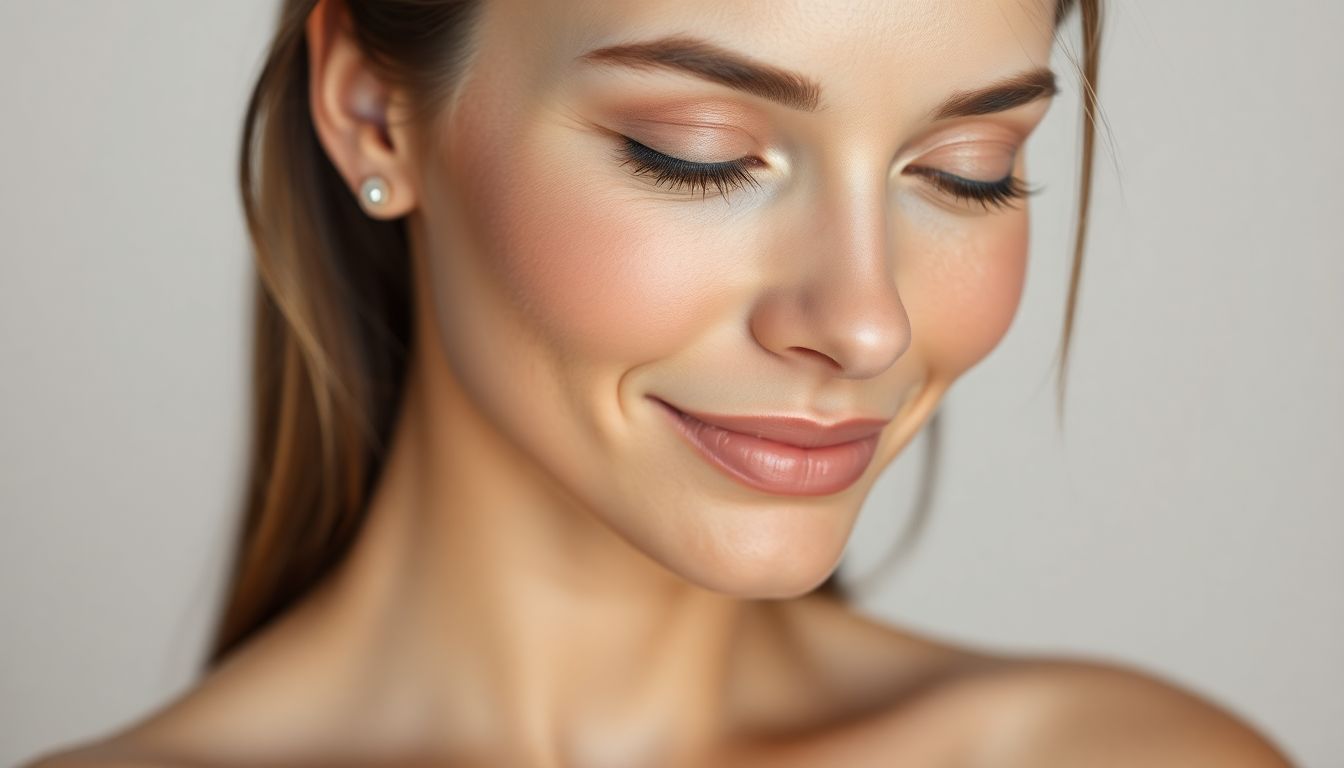
Did you know the global anti-aging market is projected to reach over $300 billion by 2024? This staggering figure highlights our collective quest for youthful skin. As we age, the desire to maintain a fresh, vibrant look becomes more universal. Anti-aging products are now more accessible than ever, making it essential to navigate this vast array effectively. This guide will provide valuable tips for achieving and maintaining youthful skin.
Understanding the Aging Process
Intrinsic vs. Extrinsic Aging
Aging can be categorized into two main types: intrinsic and extrinsic.
Intrinsic Aging: This is the natural part of aging, influenced by genetics and biological processes. It leads to factors like wrinkles and loss of skin elasticity.
Extrinsic Aging: This is primarily caused by environmental factors, such as UV exposure, smoking, and pollution. Did you know that approximately 80% of visible skin aging is attributed to sun damage?
Collagen and Elastin Breakdown
Collagen and elastin are essential proteins for skin elasticity. As we get older, the production of these proteins decreases. This decline is part of the natural aging process, which begins around our mid-20s. When collagen and elastin levels drop, skin can become saggy and wrinkled.
Cellular Turnover and Skin Renewal
Cellular turnover refers to the process of shedding dead skin cells and replacing them with new ones. This process slows down with age, affecting skin texture and appearance. Studies show that our skin's turnover rate can slow by up to 50% as we age, leading to dull and uneven skin.
Building a Powerful Skincare Routine
Cleansing
A proper cleansing routine is vital. Gentle cleansing removes impurities while preserving the skin's natural oils.
Oily Skin: Look for gel cleansers that can help control excess oil.
Dry Skin: Creamy cleansers enriched with hydrating ingredients are ideal.
Sensitive Skin: Choose fragrance-free products to avoid irritation.
Exfoliation
Exfoliation helps remove dead skin cells, improving texture and promoting a youthful look.
Chemical Exfoliation: Use AHA or BHA products for a gentle solution.
Physical Exfoliation: Scrubs can be used, but limit to once a week to prevent irritation.
A study revealed that regular exfoliation can lead to a smoother complexion and minimize fine lines.
Hydration
Hydration is crucial for maintaining plump, youthful skin. Hydrating serums and moisturizers can enhance elasticity.
Hyaluronic acid is a powerful ingredient that attracts moisture, keeping the skin hydrated. Research shows it can hold up to 1000 times its weight in water.
The Power of Active Ingredients
Retinoids
Retinoids, such as retinol and tretinoin, are linked to collagen production. They can significantly reduce the appearance of wrinkles. However, they can cause irritation, so slowly introduce them into your routine. Dermatologists often recommend applying them every other night, especially for those new to retinoids.
Antioxidants
Antioxidants like vitamin C and E have protective properties that combat free radical damage. A study indicated that topical application of antioxidants can enhance skin quality and improve overall appearance.
Peptides
Peptides signal the skin to produce more collagen. For example, copper peptides are known for their skin repair and firming properties. Research highlights their positive effects on skin firmness and elasticity.
Sun Protection: Your First Line of Defense
The Harmful Effects of UV Rays
UV rays lead to premature aging and significantly increase skin cancer risks. About 90% of skin cancers are related to sun exposure. Protecting your skin is essential.
Choosing the Right Sunscreen
Opt for a broad-spectrum sunscreen with SPF 30 or higher.
Chemical Sunscreens: Absorb UV rays and often have a lighter texture.
Mineral Sunscreens: Reflect UV rays and are suitable for sensitive skin.
Daily Sunscreen Application
Regardless of the weather, apply sunscreen each day. A consistent application can drastically reduce signs of aging. For example, many individuals have reported improved skin condition after adopting a daily sunscreen routine.
Lifestyle Factors for Youthful Skin
Diet and Nutrition
A healthy diet rich in antioxidants and essential nutrients is vital for skin health. Foods like berries, nuts, and green leafy vegetables can significantly benefit your skin.
Sleep and Stress Management
Adequate sleep and effective stress management are essential for maintaining healthy skin. Lack of sleep can lead to dull, tired skin. Research shows sleep deprivation negatively affects skin hydration and overall health.
Hydration from the Inside Out
Staying hydrated is key. Drinking plenty of water helps maintain skin moisture. Water helps flush toxins, contributing to a clearer, healthier complexion.
Conclusion
Achieving youthful skin requires a comprehensive approach. Focus on understanding the aging process, building a solid skincare routine, using effective active ingredients, protecting your skin from the sun, and making positive lifestyle choices. Remember to consult with a dermatologist for personalized guidance. Embrace these tips for a brighter, younger-looking you.
